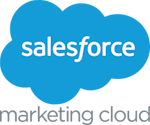
In today’s digital age, businesses are increasingly turning to robust marketing automation platforms like Salesforce Marketing Cloud to streamline their marketing efforts and drive growth. However, amidst the allure of powerful features and scalability, there lie hidden costs that can catch businesses off guard if not properly understood and planned for. In this blog post, we delve into the hidden costs of Salesforce Marketing Cloud, shedding light on what you need to consider beyond the initial subscription fee.
1. Implementation and Customization
Implementing Salesforce Marketing Cloud is not just about signing up and logging in. It requires thorough planning, configuration, and often customization to align the platform with your specific business needs. Depending on the complexity of your requirements, this could involve hiring consultants, developers, or Salesforce partners. These professionals ensure that the platform integrates seamlessly with your existing systems, such as CRM databases, and that it's configured to maximize efficiency and effectiveness. These upfront costs are crucial investments but can add significantly to your initial budget.
2. Data Storage and Usage
Data is the lifeblood of marketing automation, and Salesforce charges for data storage beyond a certain limit included in your subscription plan. As your customer base and marketing campaigns grow, so does the volume of data stored within Marketing Cloud. Exceeding the allocated storage limits can result in additional charges, necessitating careful monitoring and management of your data usage to avoid unexpected costs. Similarly, excessive API calls, which are often necessary for integrations and data transfers, can also lead to additional charges if they exceed the limits set by your plan.
3. Training and Support
While Salesforce provides basic support as part of its subscription plans, advanced support options or additional training for your team may come at an extra cost. Marketing Cloud is a powerful tool with a range of features that require expertise to fully leverage. Investing in training ensures that your team can effectively utilize the platform's capabilities, stay updated with new features, and troubleshoot issues independently. Depending on your organization’s needs, ongoing training and support costs should be factored into your budget.
4. Custom Development and Integrations
Beyond initial setup, customizing Salesforce Marketing Cloud to meet specific business requirements often involves custom development work. Whether it's creating tailored email templates, developing complex customer journeys, or integrating with third-party applications, these customizations can incur additional costs. Organizations may need to hire developers or engage Salesforce-certified consultants to implement and maintain these custom solutions, ensuring that the platform evolves alongside your business needs.
5. Additional Features and Licenses
Salesforce Marketing Cloud offers a wide array of features and functionalities that cater to diverse marketing strategies. However, not all features may be included in your base subscription. Advanced capabilities such as AI-driven analytics, predictive modeling, or specialized modules may require additional licensing fees. Before committing to these features, it’s essential to assess their relevance to your marketing objectives and evaluate the associated costs to avoid unnecessary expenditures.
Conclusion
While Salesforce Marketing Cloud empowers businesses to create personalized customer experiences and drive revenue growth, navigating its hidden costs is crucial for budget planning and resource allocation. From implementation and customization to data usage and ongoing support, understanding these hidden costs ensures that your investment in Marketing Cloud yields maximum returns without unexpected financial surprises. By proactively managing these factors, businesses can harness the full potential of Salesforce Marketing Cloud while maintaining financial prudence and operational efficiency.
In essence, integrating Salesforce Marketing Cloud into your marketing ecosystem is not just a software purchase—it’s a strategic investment that requires careful consideration of both visible and hidden costs to achieve long-term success.
